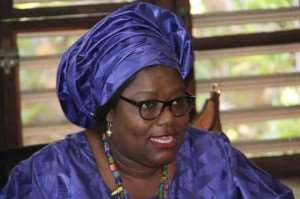
By Inusa Musah
Mrs. Beatrice Okoh, Deputy Director for Nursing Services in charge of Osu-Klotey Sub-metro in Accra, has told The Chronicle that, the Greater Accra Region (GAR) recorded 10,411 teenage pregnancy cases in 2015.
According to Mrs. Okoh, 219 out of the figure were girls between the ages of 10 to 14, whilst 10,192 of them were between the ages of 15 to 19.
The figure is, however, a drop from that of 2014, where 227 pregnancies were recorded among teenagers, whose ages ranged from 10 to 14 and 10,283 for ages of 15 to 19.
Another revelation the Osu-Klotey Sub-metro deputy Director for Nursing Services told The Chronicle were the statistics on adolescent health in the Region, where she mentioned that in 2015, 973; 181 and 6,606 cases were recorded for abortion, Human-Immune Deficiency Virus (HIV) and Sexually Transmitted Infections (STIs) respectively. In 2014 abortion cases recorded were 1,054, HIV, 171, and 4,840 for STI.
Mrs. Beatrice Okoh disclosed these figures to The Chronicle on the sidelines of a community leaders' training for assembly members drawn from the entire Metropolitan, Municipal and Districts (MMDAs) in the GAR.
The training, which sought to provide the participants information on the concepts of adolescents, and to further empower the participants to be advocates in the communities, was organized by Marie Stopes International Ghana (MSIG), a reputable and well-recognised health facility in the country, in partnership with the Ghana Health Service (GHS).

Mrs. Beatrice Okoh blamed the worrying situation on the advent of social media that most adolescents have abused and the bad attitude of some parents and elders in the community.
To address the challenge, she suggested both formal and informal discussion of the issues.
On his part, Mr. Godfred Bonnah Nkansah, National Youth Coordinator for MSIG, told The Chronicle that the irresponsible attitudes of some health personnel who exhibit cold reception towards the teenage pregnant girls could also be blamed for the bad adolescent health in the Region.
He said: “We need to stand with the young people so that they can connect and confide in us. We must blame ourselves, as leaders, for some of the woes of the adolescents.”

He also mentioned negative attitudes among adults towards youth who are sexually active or perceived to be and negative attitudes of health providers as some of the hurdles MSIG and GHS would need to advocate against.
He was of the view that -“adolescents should be allowed to negotiate for safe sex so that our national health budget does not collapse.”
He entreated the government to prioritise the youth in its health budget, and advocated for an increased health budget for the youth who, he said, are in the majority.
Mr. Godfred Bonnah Nkansah said the advocacy programme would be taken to the Eastern and Volta Regions later.




 EOCO returns fire at OSP over Cecilia Abena Dapaah’s money laundering case
EOCO returns fire at OSP over Cecilia Abena Dapaah’s money laundering case
 Anti-corruption endeavours must be rooted in systems, investigations and prosecu...
Anti-corruption endeavours must be rooted in systems, investigations and prosecu...
 We’ve not introduced 1% cybersecurity levy on banking transactions – BoG
We’ve not introduced 1% cybersecurity levy on banking transactions – BoG
 ‘Be calm; we’re having engagements on new fee implementation’ — KNUST SRC assure...
‘Be calm; we’re having engagements on new fee implementation’ — KNUST SRC assure...
 ‘Mahama not pleased with my work because I defeated him twice’ — Akufo-Addo
‘Mahama not pleased with my work because I defeated him twice’ — Akufo-Addo
 ‘I’ll control government spending when elected President’ — Bawumia
‘I’ll control government spending when elected President’ — Bawumia
 Bawumia is compassionate, unique politician without corruption tag — Miracles Ab...
Bawumia is compassionate, unique politician without corruption tag — Miracles Ab...
 2024 elections: Elect a new leader if Bawumia doesn't deliver in his first term ...
2024 elections: Elect a new leader if Bawumia doesn't deliver in his first term ...
 2024 elections: Let Aduomi be if he won't return; just work hard — Prof. Osafo t...
2024 elections: Let Aduomi be if he won't return; just work hard — Prof. Osafo t...
 Multinational companies exiting Ghana worrying; it'll lead to job losses, deter ...
Multinational companies exiting Ghana worrying; it'll lead to job losses, deter ...
